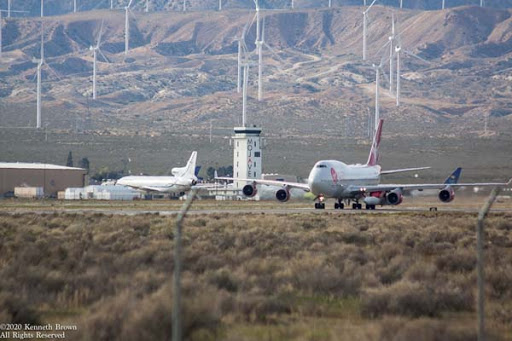Spaceport Cornwall helps fight climate change
1st Mar 2021
The UK is one of the top ten space power countries, and soon, it hopes to increase its influence in this market by opening more than one UK spaceport. One of such facilities is planned for construction at the Newquay Airport in Cornwall, South West England. Today, the region is going through difficult times, and the Cornwall Council believes that the spaceport will revitalise the economy, attracting investment and creating new jobs.
The council considered not only economic benefits but also the environmental aspect of the Cornwall Spaceport. The University of Exeter presented an independent study of the potential ecological impact of the UK spaceport Cornwall launches, outlining possible countermeasures to mitigate their consequences.
The report showed that the spaceport would not affect Cornwall’s total greenhouse gas emissions, while the economic benefits derived from the construction of the spaceport can help to combat climate change.
Why a UK Spaceport at Newquay Cornwall?
Newquay Airport was previously operated by the British Royal Air Force together with the US Air Force. The latter used it as a base for its tactical nuclear bombers. The United States left the airfield by the end of 2009, and now it operates as a commercial airport with a capacity of up to 450,000 passengers a year.
The airport has excellent infrastructure, the longest runway in the UK, capable of accommodating large transport vessels. Besides, it has a low population density and a convenient geographic location that allows launching satellites into polar orbits along the smallest trajectory. Such favorable conditions stipulated the initiative to create a UK spaceport for horizontal launches on the basis of Newquay Cornwall.
Horizontal Launch Technology
Most vehicles are launched vertically today. However, there is also a horizontal technology that allows launching a rocket from the aircraft wing. Today, British company Virgin Orbit, founded by Richard Branson, is actively developing this technology. This same company should become the main launch provider at Newquay Cornwall Spaceport.
To this end, Virgin Orbit has a modified cargo Boeing, capable of carrying a lightweight rocket with a payload capacity of up to 350kg. The Boeing takes off from the runway and launches the rocket into orbit at 35,000 feet altitude. This launch technology is more affordable than a vertical one since the aircraft acts as the first rocket stage, which means lesser fuel consumption and, as a result, lower pollution levels for the atmosphere.
Virgin Orbit’s agreement with the Cornwall Council holds great promise for the region and the UK as a whole. Aerospace companies will have access to a more flexible launch schedule in comparison to conventional spaceports and Newquay airport will come truly unique, as it can offer passenger and space flights from one and the same facility.
Does this UK spaceport have the support of the locals?
Despite obvious economic benefits and the research proving the minimal launch impact on the region’s ecology (the report shows that Virgin Orbit launches will add only 0.1% of carbon by 2030), some community leaders and environmental activists in Cornwall protested against this construction.
Activists believe the report’s findings are erroneous and will not help combat climate change. Besides, they demand Richard Branson and not Cornwall taxpayers to fully cover spaceport construction expenses. Initially, construction costs were distributed as follows: Cornwall Council — £ 12 million, UK SA — £ 7.5 million, Virgin Orbit — £ 2.5 million.
In the fall of 2020, the Covid pandemic also made a move against the spaceport. On 17th September, the Cornwall Council was forced to allocate £5.6 million from the spaceport budget to keep the airport operational.
However, Cornwall Council still hopes for the spaceport launch in 2021. To combat climate change and neutralize harmful emissions from Virgin Orbit launches, the council promises to plant 50 thousand trees within the Cornwall Spaceport region.






Thank you for your comment! It will be visible on the site after moderation.